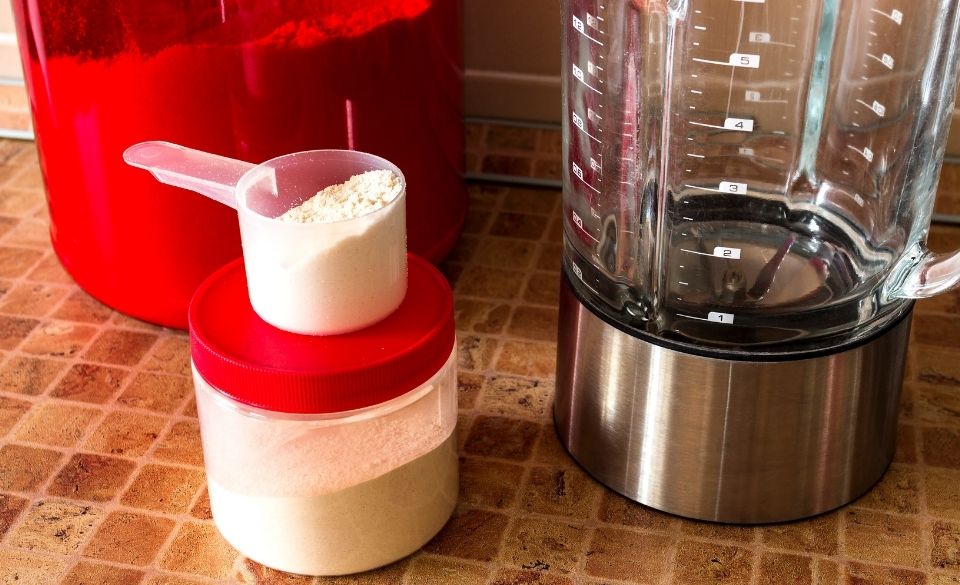
Is Pre Workout Bad For You? Pre Workout Supplements & Drinks Guide
Page Contents
Whether you are new to working out or just starting for the first time, you may have heard about pre-workout supplements.
Many companies, athletes, and regular gym members often recommend pre-workout. Many people claim that these supplements can help improve fitness, give you more energy and increase your mental state.
Some experts have described pre-workout as potentially dangerous and should be avoided at all costs. However, this is not always the case, so let’s discuss:
– Is pre-workout bad for you?
– What ingredients are in pre-workout?
– What types of pre-workout you should avoid?
– When to take pre-workout before you training?
Keep reading if you are unsure whether these types of supplements can help your gym routine.

What Are Pre-workout Supplements?
Pre-workout supplements typically come in powdered form, which is a substance that you mix into water and drink before exercise. These supplements aim to help boost your energy and increase your athletic performance.
Pre-workout supplements are often used by gym members, runners, cyclists, and other sportspeople wanting a boost to get them through the workout.
While many formulas exist, most of these supplements combine caffeine, creatine, amino acids, and beta-alanine. However, the quantity of these ingredients will vary between each manufacturer.
What Ingredients Do They Have?
If you are looking for the best pre-workout supplement, there are some ingredients you should for. These include:
– Nitric oxide precursors
– Caffeine
– Creatine
– Beta-alanine
– Branched-chain amino acids (BCAAs)
Even though there is limited research on the use of pre-workout supplements, the above ingredients may help you to improve your performance.
Nitric oxide precursors – Nitric oxide is a compound that is naturally produced in your body. However, by increasing your intake of this you may improve blood flow and help to relax your blood vessels. Because of this, many supplements combine some of the compounds (L-arginine, L-citrulline, beetroot juice) needed to make nitric oxide.
Research has found that increasing supplementation of these compounds can help boost oxygen and nutrients to the muscles. However, most research into nitric oxide has been on young males. So, there is much more research needed to make a clear conclusion.
Caffeine – Most people know that caffeine (when taken in the right amounts) can benefit performance in the gym, on the bike, or even running. Caffeine has also been proven to improve mental alertness as well as increase the use of fat as an energy source.
Creatine – Creatine is often found in pre-workout formulas and individual supplements. The supplement is widely popular within the bodybuilding and weight lifting community.
Creatine is a chemical compound that is produced by the body naturally. It plays a role in energy production as well as muscular strength.
Research has shown that using a creatine supplement can help improve recovery time, muscle mass, strength, and overall performance.
Beta-alanine – Known to prevent acid tissue throughout the muscle tissue, beta-alanine is widely used in most pre-workout supplements on the market today. Research has shown that using a beta-alanine supplement helps your muscles work harder and longer.
BCAAs – While not as popular in pre-workout as others on this list, branched-chain amino acids are often combined with the other ingredients. This is because BCAAs have been shown to promote muscle growth and relieve muscle soreness.
What Pre Workout Should You Avoid?
Even though pre-workout supplements are normally safe, there are still some risks to taking them. These could include:
– Excess amounts of caffeine
– Artificial sweeteners
– Untested supplements
Even though most pre-workout drinks and powders contain artificial sweeteners, they may still cause you to get an upset stomach. Artificial sweeteners like sucralose have been known to cause gas, bloating, and diarrhea. So, it is important to test your pre-workout before using it as an exercise performance enhancer.
Even though most people take caffeine daily (coffee, drinks, etc.), too much can cause side effects. These include increased blood pressure, stress, and sleep impairment.
Most supplements containing caffeine usually contain as much as 2 cups of coffee. However, some on the market are higher. So it is important to make sure you combined the total amount of caffeine during the day, not just from the supplement, so you don’t consume too much.
Last but not least is third-party testing. Many countries are slack on pre-workout supplements, as they are usually classed as food by the country’s food and drug administration. That means the ingredients can be misleading and sometimes inaccurate. This is extremely important to athletes that follow WADA (World Anti Doping Agency), as a misleading label may cause a positive test. So, knowing this it is important to use supplements that are third-party verified as not contain any banned substances.

Should You Take Pre-workout?
Generally, pre-workout supplements don’t have any firm research behind them. While some of the ingredients do, as a whole it hasn’t yet been proven to benefit your workout as much as manufacturers claim.
It is important to know, most pre-workout powders and drinks are considered safe for adults. However, you shouldn’t rely on them to get you through your workout or even for health benefits.
When To Take Pre-workout Supplements?
Most manufacturers state on their product when to take pre-workout supplements. However, if that is unclear, you should take them anywhere between 30 and 60 minutes before your workout. By doing so, it will allow enough time for the ingredients to digest and reach your bloodstream.
While the above is a guide, technically you can take it when you want. However, if you are looking to reap the benefits the product claims, you will need to follow their guidelines.
Most pre-workouts however, will last for about 60-90 minutes after consumption. So it is important to time the use of the product well. If you are still unsure, look up the ingredients and check the half-life of the ingredient (the time it stays in your system).
Just like anything else, trial and error is the key. For some people, they won’t see any benefit. However, others may feel more energized. Either way, if it motivates you to work harder and gets you through your workout strong, it can only be a winner.
So, now it is up to you to decide is pre-workout is bad for you or not!


